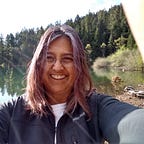Uncertainty, Attention, Education
Degree Recognition Speech, May 2023
Welcome everyone — welcome, 2023 graduates, and welcome, families and friends, and welcome, faculty and staff from the University of Utah. We are here today on land named for the Ute tribe — land that is the traditional and ancestral homeland of the Shoshone, Paiute, Goshute, and Ute peoples and is a crossroad for Indigenous peoples. I am grateful for the territory upon which we gather today and want to acknowledge the complexity in particular of this specific park and its history.
This is my favorite occasion of the year. It’s our chance to celebrate a diverse group of graduates — from all programs and all colleges — who share the distinction of receiving the highest baccalaureate degree the university of Utah offers — the honors baccalaureate. To be here, these students completed a rigorous liberal arts and sciences foundation curriculum AND engaged in deep scholarly or creative work in their discipline. They were supported in doing so by their friends and family, who deserve some appreciation for that support at this moment. And, they did so hand-in-hand with faculty and staff all over the University — in the Honors College and outside it.
Of course, this occasion, along with the rest of the commencement ceremonies of the next days, also marks a transition — the end of your undergraduate years, and the beginning of — well, whatever comes next. So, I have been thinking a lot, lately, about uncertainty. Every transition in our lives — every one — is marked by uncertainty. And uncertainty is really hard to take — research in my own home discipline of Psychology sometimes shows that people would rather experience certain pain than endure uncertainty.
And, let’s acknowledge that this graduating class has faced, and will face, immense uncertainty — having had much of their collegiate careers disrupted by a global pandemic, alongside and additional to more long-simmering societal challenges like climate change and the long legacies and present incarnations of racism and other social injustices, the increasing polarization of our society and others, challenges to democracy across the globe.
Uncertainty is hard. It challenges who we are — when we let go of one set of identities and labels and roles and positions — who are we, after we aren’t a student any more? And, if we don’t know who we are, then what is there in the world to provide us with a point of reference — a point of refuge. What gets us through uncertainty intact in our sense of ourselves?
I actually think that of the many things education does, one of the most profound is that it changes what we look at, and how we see, and our awareness of the world. It’s an education that changes cracks in a sidewalk to a reading of the invisible geography underneath. It’s an education that allows us to tune into subtle differences in the way one institution does a land acknowledgement, and the way another might approach the same complicated challenge. It’s an education that has shaped and formed each of your unique consciousnesses — your unique awarenesses of the world.
What does this have to do with uncertainty? Buddhists teach us that everything is constantly in flux — constantly changing. There is nothing but uncertainty. But, the calm in that chaos lies in the continuity of our own awareness — your awareness is always there — it is a point of reference and refuge. It is one of the most powerful tools at your disposal in uncertain times. And your awareness, your unique awareness, is shaped partly by the educational journey you have taken.
The awareness students cultivate through their education — whether it is the capacity to notice abnormalities in cell structure or the capacity to see how a policy might be shifted to better serve the public — also includes, if we have succeeded, an awareness of relations and connections. And in uncertain times, our relationships matter so very much — the deep ones, of the sort reflected here in this room, and also the more tentative and surface ones that inform our everyday exchanges. Relationships, too, help us weather uncertainty and change while reminding us who we are at the core.
Finally, in the breadth and depth that characterizes the honors degree, we want students to be able to face uncertainty with a sense of hope. Rebecca Solnit, the great essayist, reminds us that
“Hope locates itself in the premises that we don’t know what will happen and that in the spaciousness of uncertainty is room to act.”
All of you are more and differently aware, more and differently connected, than you were before your path to this degree began. I am looking forward to seeing how you will hope, and act, in an uncertainty that is yours to explore.
